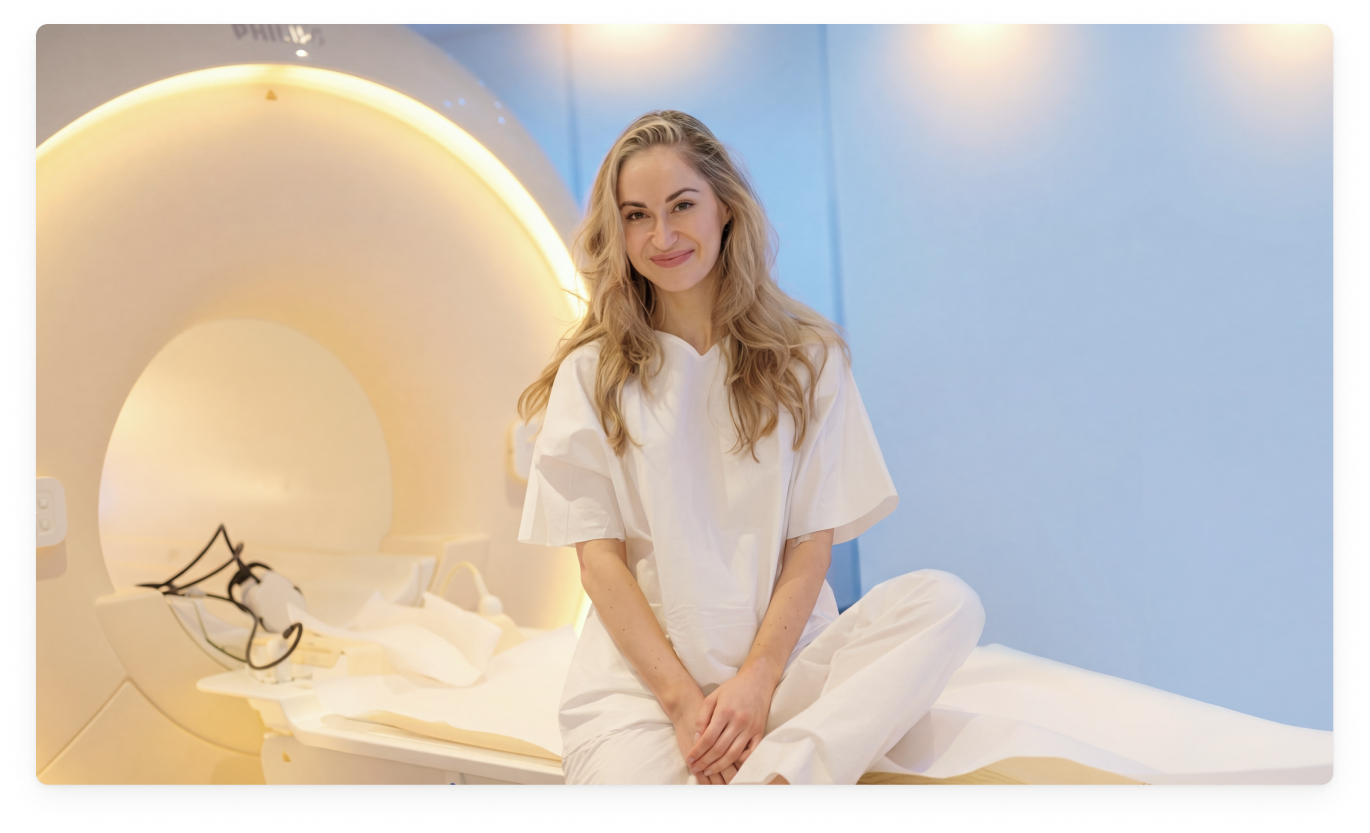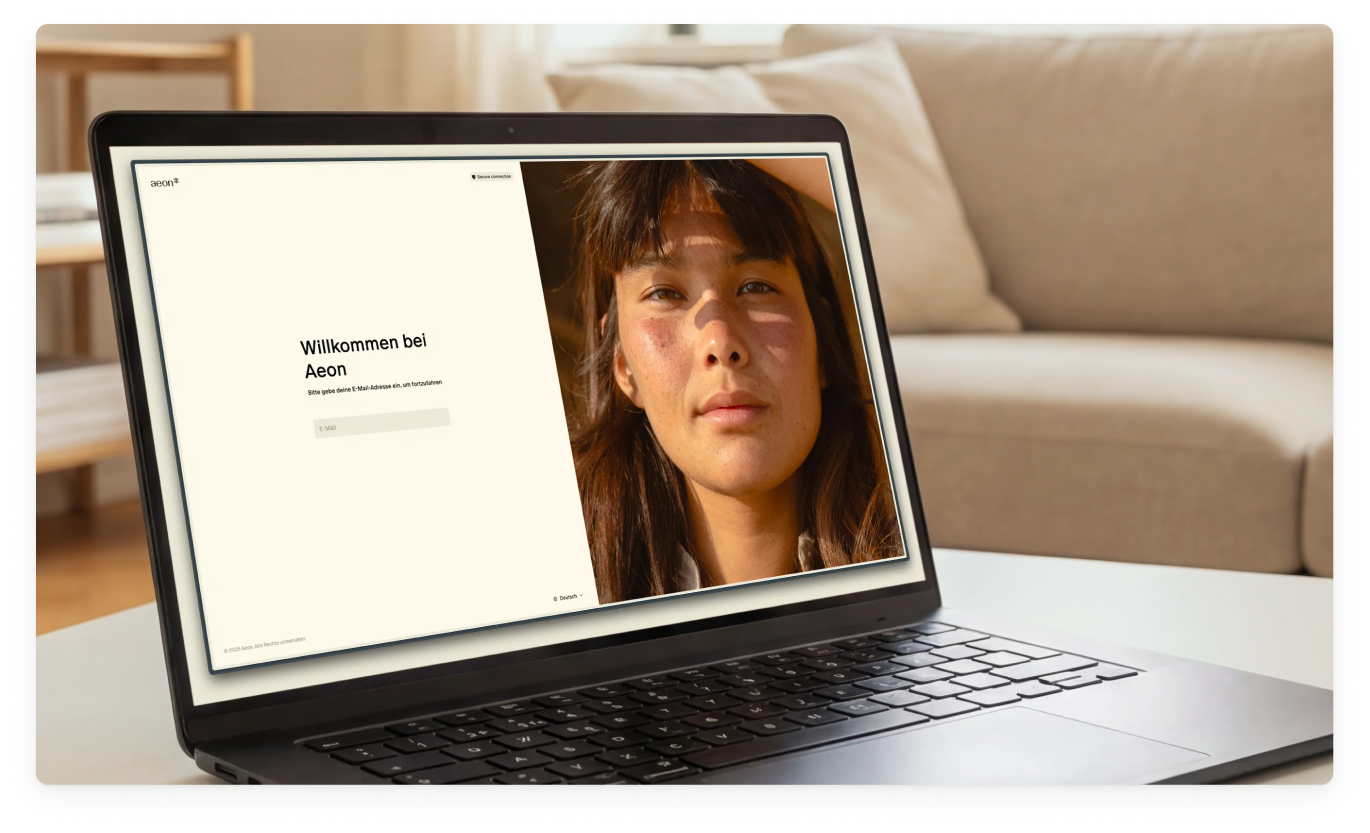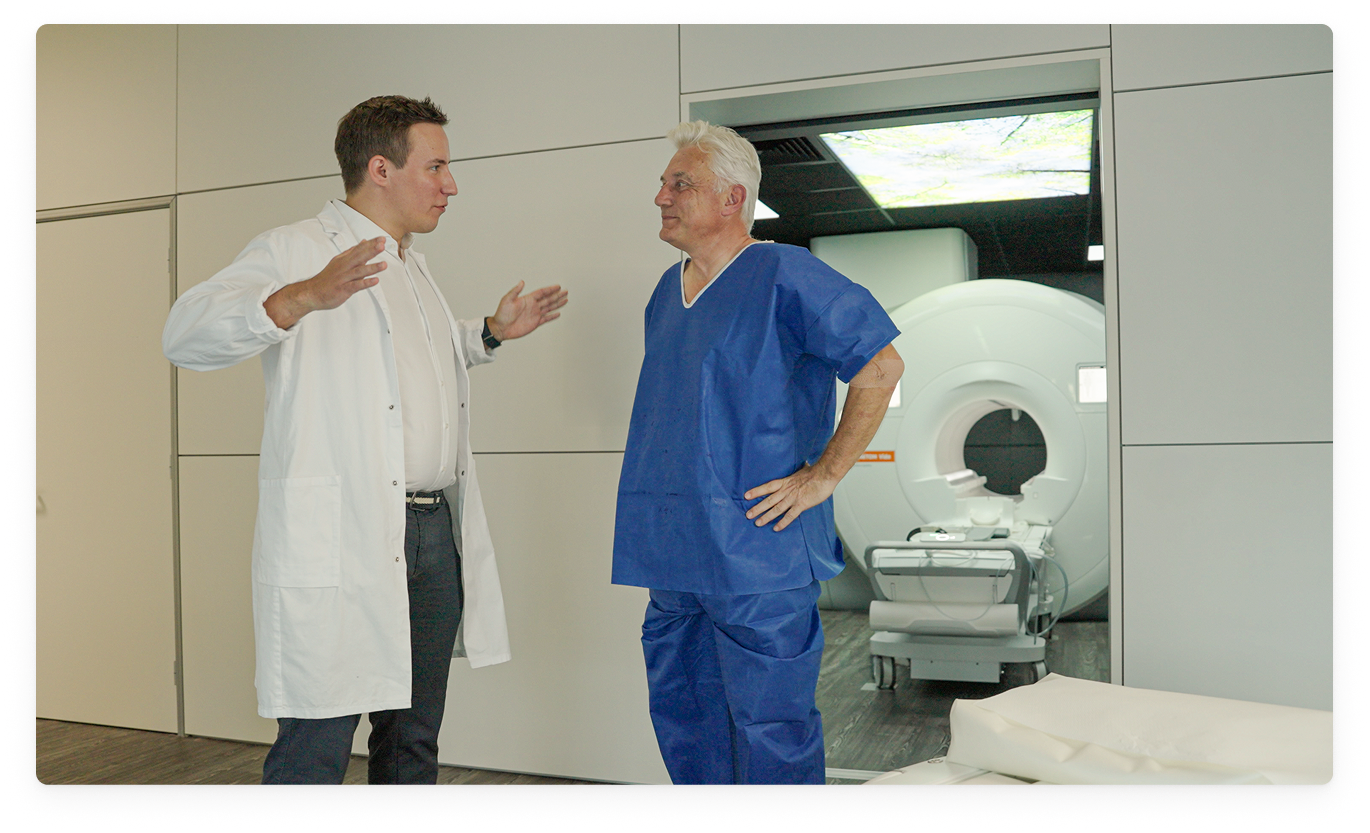:quality(75))
The checkup that leaves nothing unseen.
Cutting-edge MRI technology and detailed blood analyses capture over 1,000,000 data points across all vital organs — enabling early detection of risks and targeted action.
Discover hidden risks
Only one visit needed
Results within 5 workdays
No radiation or contrast agent
A complete picture of your health
Get clear insights into your current health status - from organs to important biomarkers. The Aeon Check-up combines whole-body MRI and blood analysis to detect risks early and make findings understandable.
“I had no symptoms and discovered I had a small tumor. Today I am healthy. If we have the technology why wait?”
:quality(75))

Book comfortably online

Your on-site check-up

Results in the Aeon Portal

Debriefing & continuous support
Book comfortably online
Your on-site check-up
Results in the Aeon Portal
Debriefing & continuous support




Which check-up is right for you?
We are happy to help you make the right choice and advise you in detail about your options.
Starter
Essentials
The essential whole-body screening for early risk detection with full-body MRI and 22 biomarkers.

Doctor's consultation
Included
Duration
90 Min
Radiation
None
Contrast agent
None
Body composition insights
Customised intervention plan
Genetic analysis
Longevity consultation
Plus
Best seller
Advanced whole-body screening with full-body MRI, biomarkers, and AI-based body composition analysis.

Doctor's consultation
Included
Duration
90 Min
Radiation
None
Contrast agent
None
Genetic analysis
Longevity consultation
Premium
Most insight
The most extensive check-up with MRI, 70+ Biomarkers, Genetic testing and long-term support.

Doctor's consultation
Included
Duration
90 Min
Radiation
None
Contrast agent
None
Live longer together
We offer discounts for couples, companies, groups and families.
Save CHF500
Partner Check-up
:quality(90))
Single organ
Focused screenings
:quality(90))
Blood only
Blood testing
:quality(90))
Early detection of cancer can increase the chances of successful treatment by 90%.
“Why is early diagnosis important?”, Cancer Research UK
Schedule a check-up near you
Get a complete overview of your health in just one appointment. Aeon partners with licensed practices and medical centres throughout Switzerland.
No waiting times & quick appointments
Experience & medical expertise
Caring support at every step
What our customers say
Up to 75% coverage for full-body MRIs
KPT policyholders can now have up to 75% of the costs for a comprehensive check-up reimbursed. Benefit from a refund for thorough health prevention.
:quality(75))
Medical expertise
Aeon collaborates with leading radiologists and physicians across Switzerland.
10+
Years of experience in Switzerland
1000+
MRI scans by our radiologists
Still Have Questions?
A whole-body MRI ("magnetic resonance imaging") scan is an imaging procedure that uses a strong magnetic field and radio waves to create high-quality images of the entire body in a single examination. This includes body parts such as head and brain, neck, chest, abdomen and pelvis, spine, joints, blood vessels, and soft tissues (muscles, tendons, and ligaments).
A whole-body scan can help detect a variety of diseases and abnormalities and derive appropriate treatment recommendations. These include tumor diseases and metastases, inflammations, infections, injuries, vascular changes, aneurysms and neurological diseases (e.g., Alzheimer's and dementia, Parkinson's, multiple sclerosis). More information can be found in our blog article "MRI 101".
A recent study found that MRI screening in adults who did not have any disease symptoms led to clinically relevant findings in about one-third of patients. Of these findings, 2.6% were confirmed by pathology as invasive cancers.
Whole-body MRI is a valuable tool for early cancer detection in individuals with hereditary cancer syndromes, significantly improving their chances of long-term health and survival.
Before an MRI examination, you should inform the radiology staff about implants (breast implants, metal implants), pacemakers, medications, allergies, or pregnancy. You should also remove all metal objects and jewelry. If you have claustrophobia, be sure to let them know beforehand.
A DEXA scan (Dual-Energy X-Ray Absorptiometry) provides a highly precise measurement of your bone density and body composition.
It detects signs of osteoporosis or increased fracture risk and shows exactly how much muscle, fat, and bone mass you have – broken down by body region.
The DEXA scan is included in the Check-up Plus at aeon.
MRI, X-ray and CT are based on different technologies and are therefore suitable for different medical applications. X-rays are used to produce two-dimensional images that are particularly good at showing bone structure. Computed tomography (CT) combines X-rays with a rotating camera to produce detailed cross-sectional images, which uses more radiation but provides a more precise view of complex tissues. In contrast, magnetic resonance imaging (MRI) uses magnetic fields and radio waves to produce high-resolution images of soft tissue without radiation exposure, but with longer examination times.
A whole-body MRI as a preventive examination enables the early detection of diseases, which can lead to more effective and less invasive treatments. It offers comprehensive screening and can reveal life-changing, and thus life-saving results. It is a long-term investment in your health that saves you many other examinations.
:quality(75))
:quality(90))
